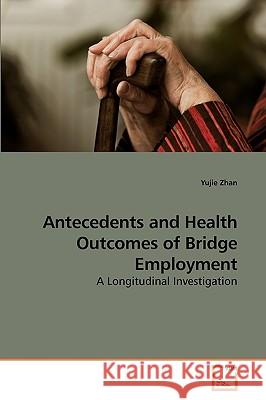Antecedents and Health Outcomes of Bridge Employment » książka
Antecedents and Health Outcomes of Bridge Employment
ISBN-13: 9783639126112 / Angielski / Miękka / 2010 / 80 str.
Bridge employment is the labor force participation pattern increasingly observed in older workers between their career jobs and complete labor force withdrawal. It serves as a transition process from employment to full retirement. Typical bridge employment decisions include full retirement, career bridge employment, and bridge employment in a different field. Three dominant theories (i.e., role theory, continuity theory, and life course perspective) on retirement processes were reviewed in this work. Longitudinal data of two nationally representative samples from the Health and Retirement Survey were used to test the current hypotheses regarding the antecedents and health outcomes of bridge employment/retirement status. The results showed that bridge employment/retirement status could be predicted by individual attributes, job-related psychological factors, and retirement planning. In turn, taking bridge employment showed beneficial effects on health outcomes. Their relationships were not moderated by pre-retirement work stress and financial condition. These findings provided both theoretical and practical implications.











